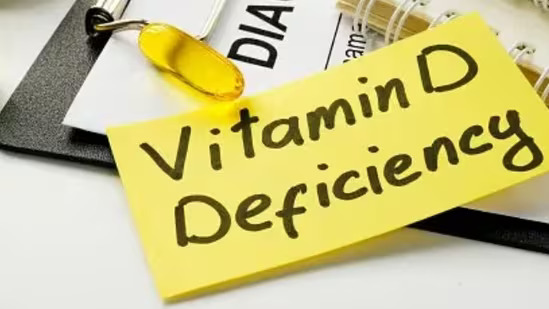Recent health surveys have brought attention to a serious concern—an overwhelming 88% of the population in the national capital region has Vitamin D levels below the recommended range. What’s even more worrying is the general lack of awareness among people regarding this deficiency and its potential impact on long-term health.
Alarming Statistics from Health Reports
A comprehensive analysis of health data collected between October 2017 and March 2018 reveals that nearly 8 out of every 10 individuals are dealing with low Vitamin D levels. The findings also show that younger adults, especially those between 21 and 35 years of age, are the most affected. A large portion of the survey’s respondents fell into the 20–29-year age group (55%), followed by 30–39 years (26%), 40–49 years (16%), 50–60 years (2%), and only 1% were aged between 60–80 years.
Effects of Vitamin D Deficiency
Low levels of Vitamin D are linked to several physical and mental health issues. People suffering from this deficiency often report chronic fatigue, muscle cramps, low mood, body aches, and general weakness. In more severe cases, it can contribute to serious bone-related conditions such as rickets in children and osteomalacia or osteoporosis in adults. Apart from bone health, Vitamin D also supports immune system function, cardiovascular well-being, and mental clarity.
Common Causes Behind the Deficiency
One of the leading causes of this deficiency is limited exposure to natural sunlight. Modern lifestyles—especially staying indoors for long hours, working in closed environments, or avoiding the sun altogether—contribute significantly to the drop in Vitamin D levels. Additionally, climate-controlled spaces like air-conditioned offices and homes further reduce the chances of sun exposure.
Nutritional Considerations
While the body naturally produces Vitamin D when exposed to sunlight, it can also be obtained through diet. Some foods that contain this nutrient include fatty fish, egg yolks, and beef liver. For those following a plant-based diet, options such as fortified cereals, soy milk, almond milk, mushrooms, and orange juice can help raise Vitamin D intake.
Community Health Initiatives
To address this growing problem, various health organizations have started awareness drives and free medical check-up camps. These initiatives aim to educate people about the risks associated with Vitamin D deficiency and provide guidance on how to maintain healthy levels through dietary habits and safe sun exposure.
Final Thoughts
Vitamin D plays a vital role in maintaining overall well-being. Recognizing the early signs of deficiency and taking timely action can help prevent more serious health issues in the future. Simple adjustments such as spending a bit more time outdoors, consuming nutrient-rich foods, or taking doctor-prescribed supplements can make a significant difference.
Always consult with your doctor or a healthcare professional before making any major changes to your diet, lifestyle, or medical routine. They can offer personalized advice based on your current health condition and medical history.
Note – If you have any health-related concerns, please call us at +91-9058577992 to receive free consultation from our experienced doctors. Thank you.
